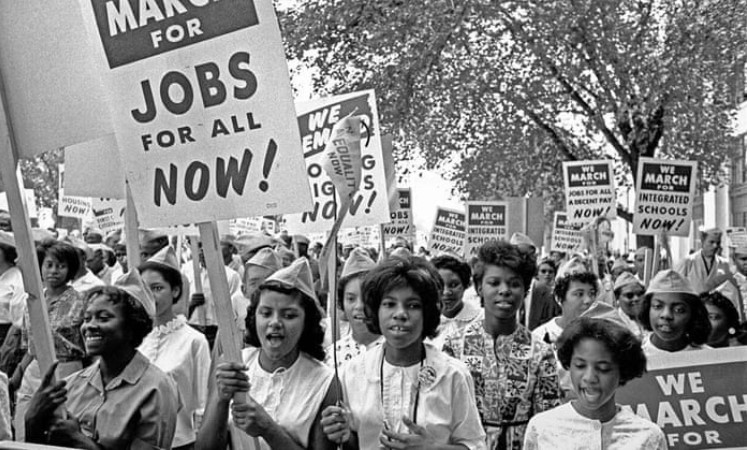After decades of being written out of history, women were gifted one week in 1982 to celebrate “Women’s History Week.” Later, in 1987 after a full 5 years of highlighting the accomplishments of women for a paltry 7 days, the week was extended to an entire month.
Just years before the first nationally recognized celebration of the labors of women and their contributions to society came to be each March, the Battered Women’s Movement of the 1970’s coexisted among several other civil rights and social justice movements of the time. Most, if not all, of these movements were supported and guided by the efforts of women, who, behind the scenes, were responsible for uplifting the dominant male voices of the struggles, feeding protesters, providing childcare, and community organizing which were critical to the success of these movements.
Without the physical strength of women, with an extended burden on women of color whose very real issues were so often left out of the struggles’ main focus and priorities, the Black Power, Chicano, LGBTQ, labor and white feminist movements of the time could have easily weakened. Thanks to the steadfast emotional labor of these women behind these powerful movements, the fight for progress persisted.
Behind the scenes, women were often victimized by domestic violence, devastatingly by their own activist counterparts. While domestic violence is deeply rooted in societal structures on all socioeconomic levels, the impact of violence against women permeated even the most progressive spheres of cultural influence at the time.
In the midst of these movements, activists pushed these cultural conversations to the forefront of society. In doing so, women’s shelters began to open, and supportive services for survivors of domestic violence were provided in the community. Shortly thereafter, the protection of legislation upheld these issues as priority and secured their relevance in society.
Now, in 2021, the veil of violence against women has been lifted, but the struggle to keep women’s voices at the forefront of ongoing movements are sometimes drowned by other pressing narratives of struggle. Let’s not forget, as we communicate the prevalence of domestic violence still in existence today and actively work to engage in social movements against discrimination, and as we come to grips with this country’s problem with perpetuating violence against black and brown bodies, that women are still impacted by violence – in and outside the home.
As we seek to deconstruct the ills of racism and gender roles in society, we must remember that the history of women has always existed, their voices and bodies have always taken up space and their contributions to the struggles of the marginalized and victimized are deeply rooted in creating a world without violence. With this reminder, we celebrate Women’s History Month and the impact of women’s activism on the elimination of domestic violence in our communities.

